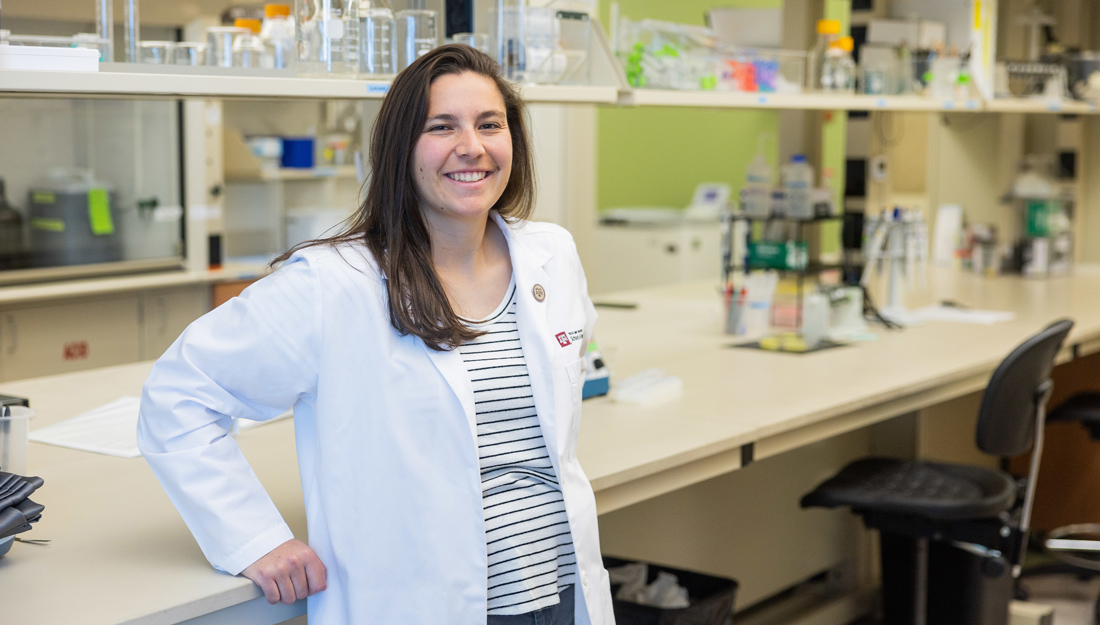Alzheimer’s Association awards research fellowship to Texas A&M School of Medicine scholar

Jaclyn Iannucci, PhD, associate research scientist in the Department of Neuroscience and Experimental Therapeutics at the Texas A&M University School of Medicine in the lab of Lee Shapiro, PhD, has been awarded a research fellowship from the Alzheimer’s Association. Her award enables her to pursue and explore the connections between dementia, traumatic brain injury (TBI) and the immune system.
Alzheimer’s disease (AD) is the most common type of dementia. In the United States alone, recent estimates indicate that more than 6 million people over age 65 are living with Alzheimer’s. Individuals with AD have severe memory loss, cognitive impairment, and other behavioral changes. Many associate the risk of developing AD with increasing age, but there are other risk factors, including cardiovascular disease, genetics, brain injury, and others that are still being studied.
The Alzheimer’s Association, since its initial establishment in 1980, has been a major force for change in how patients are diagnosed with and treated for the disease. The association supports research projects across the globe, and in 2023 alone, has invested in 271 projects being pursued by investigators at all levels.
The research fellowship—one of 24 such awards that the Alzheimer’s Association of Houston and Southeast Texas supports—will enable Iannucci to expand on her previous findings—that immune signaling and activation are altered in mouse models of both AD and TBI.
Suffering a TBI increases the risk of developing AD by 2.3-4.5 times the general population. Therefore, identifying possible mechanisms responsible for the development of AD after TBI is desperately needed. The immune system plays a major role in both TBI and AD, and Iannucci’s work has previously identified specific immune components that are elevated in both TBI and in AD. In the newly funded study, Iannucci will investigate whether it is possible to therapeutically target these immune components to improve TBI- and AD-related pathology.
TBI is a significant risk factor for developing AD and related dementias, but the mechanisms responsible for this increased risk is not well understood. “Our research sheds light on this connection by highlighting important immune signaling that may be activated in TBI and can lead to AD-related pathology,” Iannucci said.
“This fellowship is an exciting opportunity to explore really important science that could help lead to new treatment options for both TBI and AD,” Iannucci continued. “It will also help me to grow significantly in my career as a progress towards my goal of becoming an independent scientist.”
Media contact: media@tamu.edu


